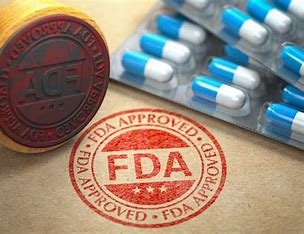Navigate the intricate FDA drug approval process with our comprehensive guide. Learn about each stage from drug discovery to market approval and how BioBoston Consulting can assist your pharmaceutical company.
Follow us on this erudite expedition, showcasing the ardent dedication towards product integrity and quality which shapes the evolution of discovery to patient care.
Introduction
The process from laboratory discovery to the marketplace as a pharmaceutical product is intricate and highly regulated. Drug Approval: We know at our quality and regulatory consulting firm that the essence of life science industry companies, is understanding the FDA drug approval process
This process is the gateway to getting safe and effective drugs to patients. This step-by-step guide will walk you through the FDA drug approval process and outline each of the complex, rigorous steps, from clinical trials and regulatory submissions to intricate review processes providing an inside look into how new medicines become available to patients.
All About The FDA Drug Approval Process
Several stages are present in the FDA drug approval process, with each aimed at ensuring pharmaceutical products are safe, work as intended and are of high quality. So let me dissect these stages in a bit more detail.
Drug Discovery & Development
It starts with a process of discovery to unearth new drug candidates. It undergoes safety and efficacy testing in laboratory experiments, and sometimes in preclinical studies. A drug development process starts once a potential candidate is found suitable.
Pre-IND Phase (Investigational New Drug):
Pharmaceutical companies must register an Investigational New Drug (IND) application with the FDA prior to starting human studies. The application contains preclinical data, manufacturing information and proposed clinical trial protocols. The FDA considers the IND application to ensure both patient safety and scientific merit.
Clinical Trials:
The heart of the FDA drug approval process is clinical trials. These are performed in three stages
Phase I: Phase One is the initial stage of drug testing, in which a small number of healthy volunteers investigate the safety, dosage and possible side effects.
Phase II: Have a larger group of patients to study the effects and prove its Safety.
Phase III – Includes a larger number of patients and gives a better indication on safety and effectiveness.
The results of these trials are the major factor that determines whether a drug is safe and efficacious for its intended use.
Submission of New Drug Application (NDA)
The sponsor company files an NDA with the FDA after a successful Phase III trial. The submission contains the safety and efficacy data of the drug, manufacturing information with labels and usage in proposed stages. The NDA is then reviewed by the FDA to determine if the drug’s benefit-risk profile supports approval.
FDA Review and Action:
FDA reviews the NDA with a team of multidiscipline experts. The review evaluates the drug’s safety and effectiveness, labeling, and its manufacturing process. Throughout this process, the FDA could seek further details or explanation.
Advisory Committee Review:
Sometimes the FDA will assemble an independent advisory committee of experts to review the NDA and provide guidance.
The FDA, however, makes the final decisions, not the committee.
FDA Approval or Rejection:
Following the comprehensive review and evaluation, the FDA makes a decision based on whether it will approve or reject the drug. If the drug is considered appropriate, it will pass the Test of Strength and receive a New Drug Approval (NDA), and then be permitted into the drug market.
Post-Approval Monitoring
The FDA does not stop testing of a drug even after it is released. FDA keeps track of the drug as part of the post-market surveillance programs. This ” real-time” evaluation is essential to ensure that the drug remains safe for patients, and it continues to meet safety standards.
FDA Expedited Programs
For certain conditions, the FDA will consider drugs that offer significant benefits or treat an unmet medical need for expedited approval programs such as to Fast Track, Breakthrough Therapy, Priority Review and Accelerated Approval to bring them into market quickly
Conclusion
The FDA drug approval journey is an arduous and controlled process which takes years of examination, clinical trials, scientific challenges. This is a critical function of maintaining patient safety.Only safe and effective drug products enter the market. Being a quality and regulatory consulting firm focused in the life science sector we know how hard this process can be.
If your pharmaceutical company is in the FDA drug approval process, our team of experts are available to help you during each stage. Whether you are preparing for INDs or getting your NDA submissions ready, we can expedite the regulatory pathway of your programs with increased likelihood of an approved product and the ability to deliver innovative drugs to patients as efficiently as possible.
Get in touch with BioBoston Consulting right away or go to our website now and learn more about how we can help your organization.


